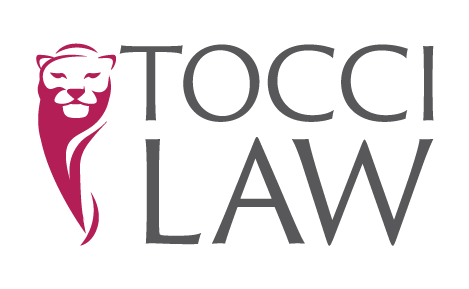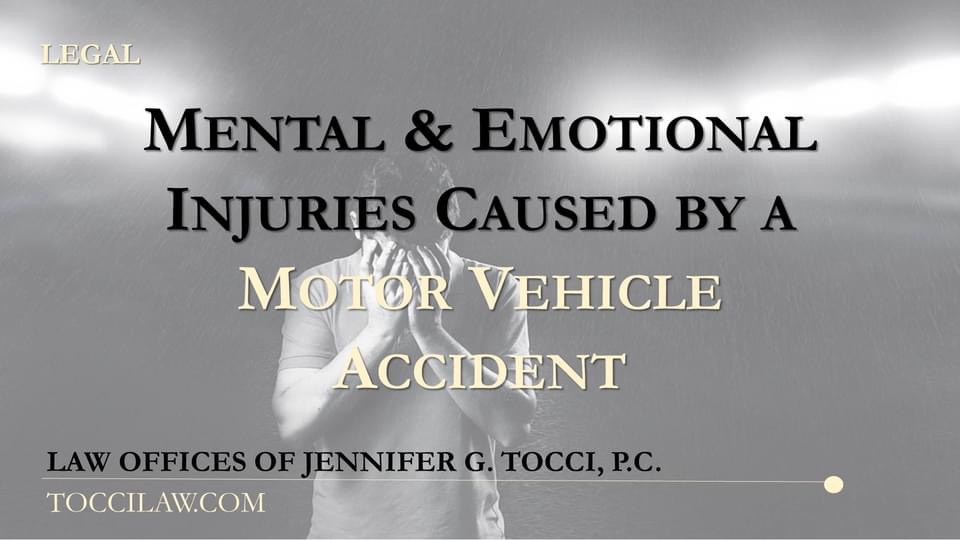When an injured party has suffered a “serious injury” after a motor vehicle accident, he/she may recover for pain and suffering from liable parties. In accidents that occur in New York State, you may only receive compensation for pain and suffering when the accident causes a “serious injury,” as defined by New York State Law. Once any one injury surpasses the “serious injury” threshold, you may receive compensation for all other injuries (even injuries that would not individually meet the threshold).
Are emotional and mental injures compensable?
As in a physical injury, the value of pain and suffering depends on the nature of the injuries. You may be able to receive compensation for emotional damages when your mental and emotional state is the consequence of injuries incurred after a motor vehicle accident. As with a physical injury, emotional damage claims are stronger where the mental suffering is severe enough to cause physical manifestations. The claim is strongest where brain injuries are identifiable by your physician. Similar to physical injuries, you may be compensated for your pain and suffering. Additionally, you may be compensated for lost wages resulting from your injuries.
Mental Injuries without Physical Injury:
Insurance companies will compensate an injured party for mental and emotional issued caused by an automobile accident. The claims must be proportional to the accident.
Injury to a Fetus: A mother has a right to recover for emotional distress, without physical injury, where she miscarries or delivers a still born baby as a result of the accident.
Negligent Infliction of Emotional Distress: These cases are difficult to prove, and often limited by the courts. The defendant must be shown to have been negligent, but the emotional distress must be caused directlyas a result of the defendant’s negligence.
Intentional Infliction of Emotional Harm: There must be extreme conduct on the part of the defendant, intended to cause emotional injuries. The injured party must suffer severe distress caused by the extreme conduct of the defendant.
Mental Injuries with Physical Injury:
Post-Traumatic Stress Disorder (PTSD) is one of the most common mental illnesses resulting from a traumatic experience, such as a serious auto accident. Symptoms of PTSD after an auto accident may include fear and anxiety driving, nightmares, bad memories of the experience, an increase in negativity, depression, trouble sleeping or concentrating, mood swings, hyperarousal (always being alert), etc.
Depression and anxiety may also be experienced after a serious accident, especially an accident that involved a totaled car, grave injuries, and death. Depression after a motor vehicle accident includes feeling hopeless, irritable, persistent sadness, changes in appetite, insomnia, etc. Anxiety may have similar symptoms, where a person feels increased tension, and experiences worried thoughts throughout their day. Depression and anxiety may affect daily life and may even result in physical health manifestations.
Proving Mental Illness:
As with any other injury, a diagnosis from a physician will be required, in addition to treatment by a physician for the same. Moreover, your physicians will have to link your injuries to the accident. Having your physicians diagnose and treat your injuries will not only assist in your personal injury case but in managing, reversing, and curing your injury. Documentation from a physician will be the key to proving your emotion and mental injuries resulting from an accident. The more medical records supporting claims of your injury, the stronger your claim will be. Medical records are strongest when they include a diagnosis, a doctor’s determination that the injuries are caused by the accident, medications prescribed, frequency of treatment, results of tests, films, and all other records evidencing your injury. Later on in the case, in addition to your medical records showing evidence of your mental injuries, you may testify on records in an Examination Before Trial (EBT or Deposition) regarding how your mental injuries affect your daily life.
For a free thirty-minute consultation with a skilled attorney regarding injuries after an accident, call the Law Offices of Jennifer G. Tocci, P.C., (631) 343-7676.










